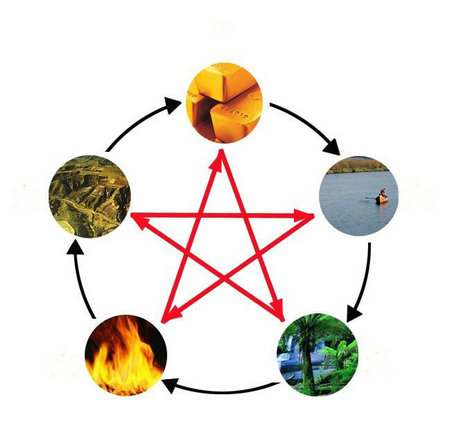 |
|
|
Zou Yan is the representative of the Yin-Yang School, and the Records of Great Historian by Sima Qian had notes about him. Lu's Spring and Autumn Annals was compiled under the sponsorship of Lu Bubei, prime minister of the State of Qin in the late Warring States Period (475-221BC).
The school is based on the theories of Yin-Yang and the Five Elements. Such theories attempted to explain the universe in terms of basic forces in nature: the complementary agents of Yin (dark, cold, female, negative) and Yang (light, hot, male, positive) and the Five Elements (water, fire, wood, metal, and earth).
In its early days, these theories were most strongly associated with the states of Yan and Qi. In later periods, these epistemological theories came to hold significance in both philosophy and popular belief.
The relationship between Yin-Yang and the Five Elements are as follows: the universe is run by a single principle, the Tao, or Great Ultimate. This principle is divided into two opposite principles, or two principles that oppose one another in their actions, Yin and Yang. All the opposites one perceives in the universe can be reduced to one of the opposite forces. The Yin and Yang accomplish changes in the universe through the Five Elements, which both produce one another and overcome one another. All change in the universe can be explained by the workings of Yin and Yang and the progress of the Five Elements as they either produce one another or overcome one another. Yin-Yang and the Five Elements are a universal explanatory principle. All phenomena can be understood using Yin-Yang and the Five Elements: the movements of the stars, the workings of the body, the nature of foods, the qualities of music, the ethical qualities of humans, the progress of time, the operations of government, and even the nature of historical change. All things follow this order so that all things can be related to one another in some way: one can use the stars to determine what kind of policy to pursue in government, for instance.